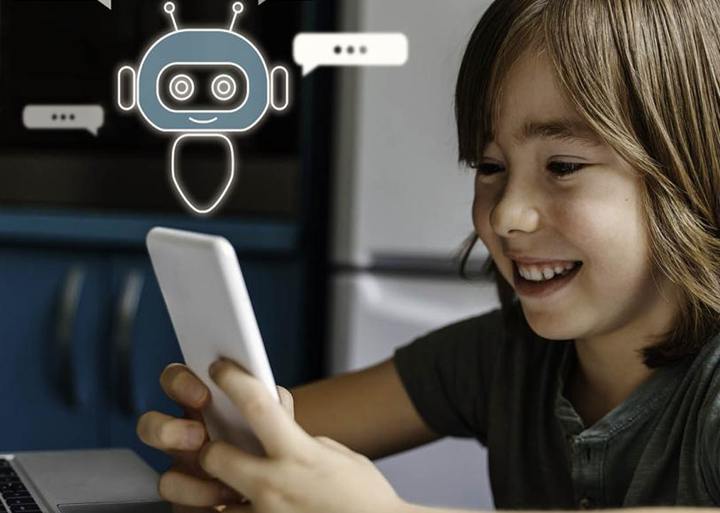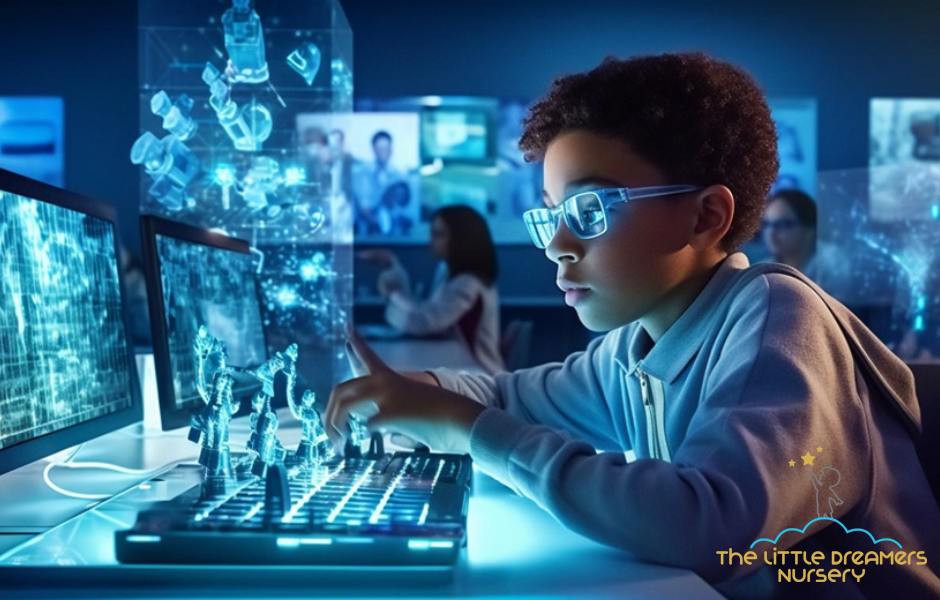Artificial intelligence (AI) is transforming our world, affecting everything from how we communicate to how we learn. As AI technology becomes increasingly integrated into everyday life, it is imperative for parents to understand its implications for their children. For this reason, to investigate the issue of how AI will affect children? do we pay and point out its potential benefits and risks to help parents navigate this evolving landscape and shape their children’s future accordingly.
How AI Will Affect Children?
AI technology is reshaping childhood experiences in profound ways. From interactive learning tools to smart toys, AI is becoming a staple in children’s lives. As children engage with AI-driven applications, they develop new skills, including problem-solving, creativity, and critical thinking. However, it’s crucial for parents to be aware of how AI will affect children in terms of their social interactions, emotional development, and learning habits.
Is AI Safe for Children?
The safety of AI for children is a pressing concern for many parents. While AI can offer educational benefits, it also raises questions about privacy and data security. Many AI tools collect personal information, which can be vulnerable to breaches. Additionally, children may not fully understand the implications of sharing personal data with AI systems. Parents must take an active role in educating their children about online safety and monitoring their interactions with AI technology.
How Does AI Help Children?
AI provides numerous advantages that can enhance children’s learning experiences. Some of the key benefits include:
- Personalized Learning: AI-driven platforms adapt to individual learning styles, allowing children to progress at their own pace.
- Skill Development: AI tools can identify areas where a child struggles and offer tailored exercises to improve their skills.
- Creative Expression: AI fosters creativity by providing tools for artistic expression, such as digital painting or music composition.
By understanding how AI will affect children, parents can empower their children to use these tools effectively.

Is AI Making Children’s Lives Better?
Many argue that AI is improving children’s lives by making learning more engaging and accessible. With AI, children can access a wealth of information and resources, breaking down barriers to knowledge. For instance, language translation tools enable children to explore cultures and languages they might not otherwise encounter. Moreover, AI-powered educational games can motivate children to learn through play, making education a fun and interactive experience. By recognizing how AI will affect children, parents can support their children in leveraging these advancements for growth.
How Harmful Can AI Be?
While there are undeniable benefits to AI, it’s essential to consider its potential harms. One significant concern is the risk of addiction to screens and technology. Children may become overly reliant on AI for entertainment and learning, which can hinder their social skills and ability to engage in physical activities. Additionally, there’s the risk of exposure to inappropriate content or harmful online interactions. Parents should establish guidelines for screen time and encourage a balanced approach to technology use.

Does AI Have Negative Effects?
AI can indeed have negative effects on children, particularly regarding their mental and emotional well-being. Some potential negative impacts include:
- Reduced Empathy: Children who interact heavily with AI may struggle with empathy and emotional intelligence.
- Skewed Expectations: If a child perceives AI tools as friends, they might develop unrealistic expectations about human relationships.
- Reinforcement of Bias: Exposure to biased information through AI systems can reinforce stereotypes and prejudices.
It’s vital for parents to discuss these issues openly with their children, helping them navigate the complexities of AI interactions. Understanding how AI will affect children can guide these conversations.
Conclusion
As AI continues to evolve, understanding how AI will affect children becomes increasingly important for parents. While AI offers significant benefits in education and creativity, it also poses risks that cannot be ignored. By staying informed and engaged, parents can help their children harness the power of AI while mitigating its potential harms. Open dialogue about the implications of AI will empower families to navigate this digital age safely and thoughtfully, ensuring that children can thrive in an AI-driven world.








